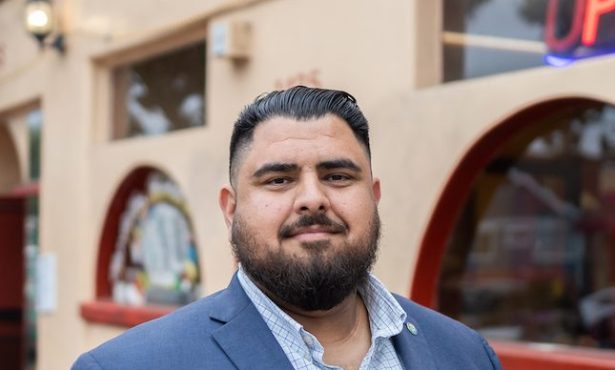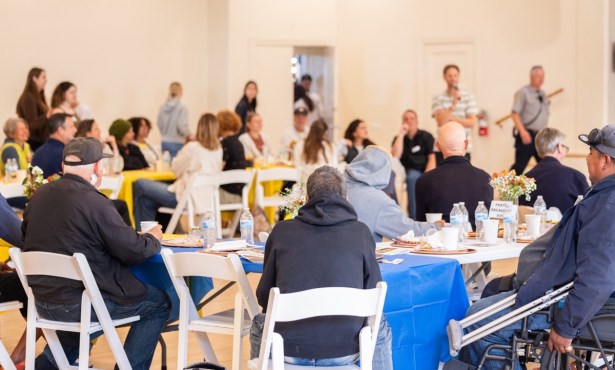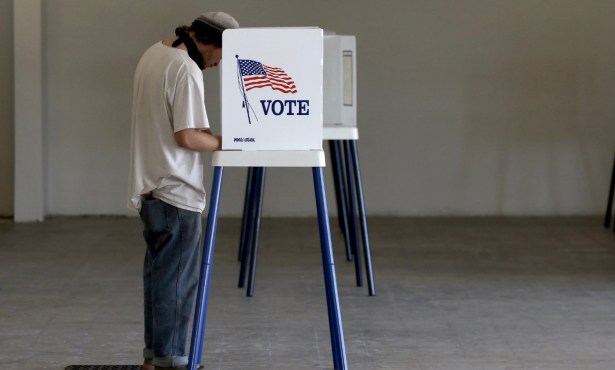The Dog that Didn’t Bark
S.B. Death Penalty Verdict Overturned
SECOND THOUGHTS: It was more a shrug than a statement. “It happens,” the voice said. The voice belonged to Marcia Morrissey, a 65-year-old Santa Monica lawyer who’s spent the past 30 years challenging death penalty convictions. I met Morrissey briefly this week over the phone. While we spoke, another phone in her office kept going off. There was no receptionist, and Morrissey needed to take someone to the hospital. Morrissey, I would find out, is the F. Lee Bailey/Johnnie Cochran most people never heard of. Back when Calvin Cordozar Broadus Jr. still went by the name Snoop Doggy Dogg and was facing murder charges, it was Morrissey who got him off.

In 2005, Morrissey inherited a death penalty appeal filed on behalf of Santa Barbara defendant George Herbert “Spider” Wharton, who in 1986 took a hammer to the head of his girlfriend Linda Smith and stuffed her body, covered in blankets and plastic, into a large cardboard barrel. Smith’s body would be discovered by police two weeks later. There was no doubt Wharton did it; he confessed. The only issue was whether Wharton — a large, bearded, paranoid schizophrenic black man with severe rage and addiction issues — acted with premeditation. Wharton said he and Smith had been drinking and arguing. She threw a book at him. Then she was dead. A Santa Barbara jury would find otherwise.
Only two weeks before the murder, jurors heard, Wharton told his psychiatrist he feared he might kill Smith. He wanted help. This, the jury concluded, constituted premeditation. The jury also heard that in 1975 Wharton kicked a male UCSB professor to death who’d asked about his sexual availability. That same year, Wharton also raped a 61-year-old woman at knifepoint after she let him into her house so he could make a phone call. For that, he got seven years. In 1987 — after three days of deliberation — a Santa Barbara jury sentenced Wharton to death row, where he’s lived the past 29 years.
A major issue was whether jurors should ever have heard what Wharton told his therapist. Such communications, by law, are privileged and confidential. An even bigger issue, it turned out, is what the jurors were never told about the sexual abuse Wharton experienced as a child. By any reckoning, it was a lot, and federal Judge Cormac Carney conceded as much. Even so, Carney found — in initial rulings early on in the case — this omission did not prejudice the jury’s decision.
But late last November, Judge Carney changed his mind. He did so only after the Ninth Circuit Court of Appeals ruled he needed to re-examine the question. (In July 2014, Carney ruled the death penalty as practiced in California unconstitutional, a ruling overturned a year later.) Just three weeks ago, in the courtroom of Santa Barbara Judge Michael Carrozzo, George “Spider” Wharton was quietly re-sentenced to life without the possibility of parole. There was no fanfare, no press releases issued. Neither the Santa Barbara District Attorney nor the California Attorney General objected. And Bill Duval, Wharton’s original defense attorney, wouldn’t hear what happened until three days later.
It’s a big deal. Of the 748 inmates now on death row, 10 were sent there by Santa Barbara County prosecutors and juries. Now there are nine. No one can remember a Santa Barbara death sentence ever being reversed before. It’s a big deal.
In 1986, defense attorney Duval hired investigator Craig Stewart to go to Wharton’s hometown in rural Louisiana to dredge up any details that might soften the jurors’ hearts. Wharton repeatedly told Stewart to talk to his older half-brother, Gerald Crawford. Crawford, Wharton stressed, knew the whole story. But for reasons still unknown, Stewart never did. Still, what he found out was plenty chilling. Stewart discovered Wharton’s step-grandfather, the 65 300-pound David Lee — a k a “Big Daddy” — took an intense dislike to Wharton. Big Daddy, Stewart reported, would wrap Wharton in a burlap sack, tie it with a rope, and swing the rope over the branch of a tree. After hoisting his grandson aloft, Big Daddy would start a low-flamed fire underneath, effectively “smoking” the young Wharton for hours at a time.
Had Stewart talked to Wharton’s half-brother, he most certainly would have heard how Big Daddy sexually abused Wharton over a sustained period of time. He would have heard Big Daddy also sexually abused two of Wharton’s sisters and also the family dog. When Wharton’s mother was a little girl, Big Daddy tried to abuse her, too. To get away, she moved out. She was 11 years old. In addition, Stewart would have heard Wharton’s biological father also abused him sexually.
Over the years, Stewart testified numerous times he had no recollection of ever speaking with Crawford. On one occasion, however, he recalled speaking to Crawford on the phone but could not remember what was said. Stewart kept detailed notes of all his interviews. For Crawford, there was only a brief notation of Crawford’s name, no statements. Three months before a 2006 evidentiary hearing on just this issue, Stewart experienced an epiphany. He couldn’t say whether it came in a dream or “if it was whatever.” But he recalled having spoken with Crawford. Crawford, however, had no such recollection. And in multiple sworn statements dating back to 1993, his testimony never changed.
If the jury heard about this sustained sexual abuse, would it have made a difference? Maybe. Maybe not. The point is they never had the evidence to weigh. Stewart never asked the right guy.
In hindsight, Morrissey has no inclination to wax righteous about Stewart’s shortcomings. He’s dead, and as she said, “It happens.” As for death penalty reversals, Morrissey added, “That doesn’t happen very often.” In 30 years, Morrissey has had just three. With a quick apology, Morrissey cut our conversation short. “I have to take someone to the hospital,” she explained.



